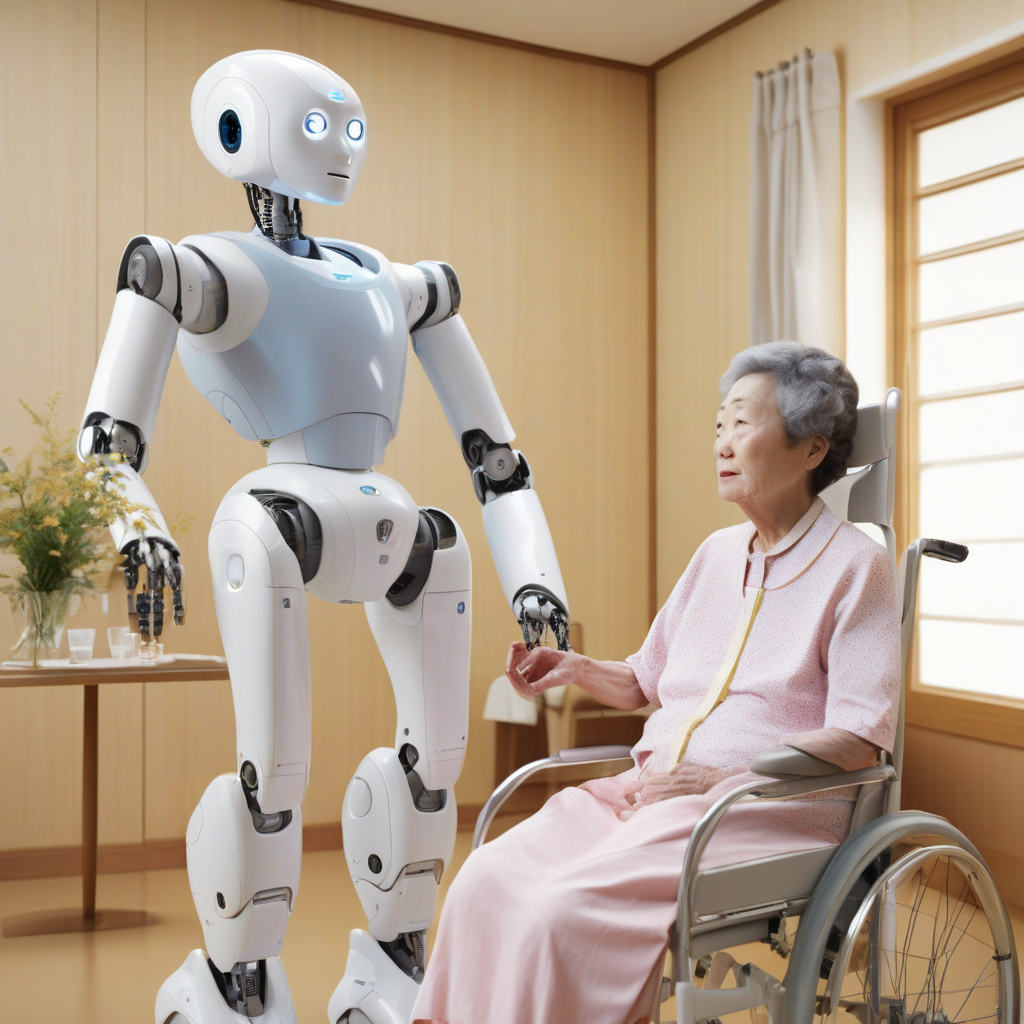Japan’s AI Robot AIREC: Revolutionizing Elderly Care
In the Land of the Rising Sun, a groundbreaking innovation is taking place in the realm of elderly care. Japan, known for its technological advancements, is now at the forefront of revolutionizing senior care through the introduction of the AI robot AIREC. This innovative creation comes at a crucial time for Japan, as the country faces significant demographic challenges, including a rapidly aging population and a shortage of caregivers.
The aging population in Japan is a well-known issue, with a large percentage of the population being over the age of 65. This demographic shift has put immense pressure on the country’s healthcare system and has resulted in a shortage of caregivers to attend to the needs of the elderly. In response to this pressing issue, the AI robot AIREC has been developed to provide assistance and support to both the elderly and their caregivers.
AIREC is equipped with advanced artificial intelligence technology that enables it to interact with the elderly in a natural and empathetic manner. The robot is designed to assist with a wide range of tasks, including reminding seniors to take their medication, engaging them in conversation to reduce feelings of loneliness, and even providing physical assistance with everyday activities. By taking on these tasks, AIREC aims to alleviate some of the burden placed on human caregivers, allowing them to focus on providing more personalized care to those in need.
One of the key benefits of AIREC is its ability to adapt to the individual needs of each senior it interacts with. Through machine learning algorithms, the robot can analyze data and feedback to tailor its responses and assistance to best suit the preferences and requirements of the elderly person. This personalized approach helps to foster a sense of companionship and trust between the senior and the robot, ultimately enhancing the quality of care provided.
Moreover, AIREC is designed to continuously learn and improve its capabilities over time. By collecting data on interactions and outcomes, the robot can refine its responses and behaviors to become more effective in supporting the elderly. This adaptive learning process ensures that AIREC remains up-to-date with the evolving needs of its users and can continuously enhance the level of care it provides.
The introduction of AIREC represents a significant step forward in the field of elderly care, not only in Japan but potentially worldwide. As countries around the globe grapple with aging populations and caregiver shortages, innovative solutions like AIREC could offer a sustainable and effective way to address these challenges. By leveraging the power of artificial intelligence and robotics, AIREC showcases the potential for technology to positively impact the lives of seniors and their caregivers.
In conclusion, Japan’s AI robot AIREC is revolutionizing elderly care in the face of demographic challenges. By providing personalized assistance, fostering companionship, and continuously learning and improving, AIREC offers a glimpse into the future of senior care. As technology continues to advance, innovations like AIREC have the potential to transform the way we support and care for the elderly, paving the way for a more compassionate and efficient healthcare system.
#AI, #Robotics, #ElderlyCare, #Innovation, #Japan












